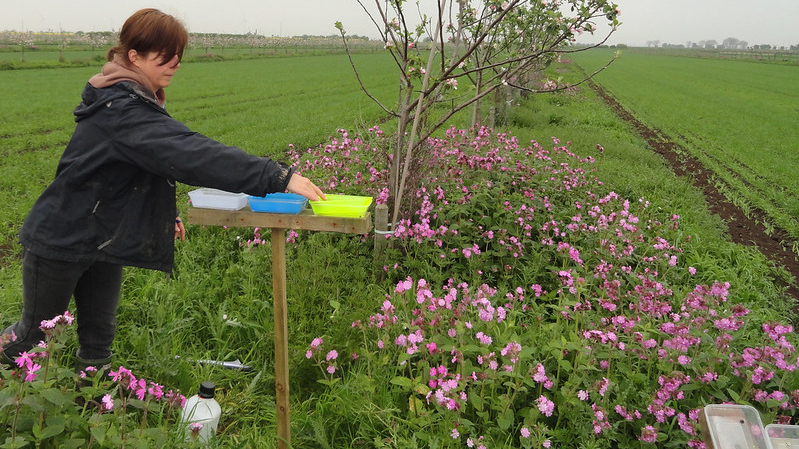A new open access paper ‘Management to Promote Flowering Understoreys Benefits Natural Enemy Diversity, Aphid Suppression and Income in an Agroforestry System,’ co-authored by Jo Smith (now ex ORC) with the University of Reading and Lund University in Sweden, has been published in Agronomy.

Agroforestry systems, where productive trees are integrated into agricultural land, can deliver benefits to biodiversity, natural pest control, and pollination, but the effects are highly variable. Recent advances in our understanding of flower strips in agricultural systems suggest that the management of the tree row understorey could be an important contributor to this variation. Here, we compare two cutting regimes for an understorey, originally seeded with the same flower mix, in the tree rows of an apple-arable agroforestry system: (i) uncut vegetation to promote a flowering understorey, and (ii) regularly mown vegetation. We recorded the effects of management on invertebrate pests, natural enemies, and pollinators, in both the apple and arable components. Apple trees above flowering understoreys supported significantly: (i) more natural enemies early in the season, (ii) fewer aphid colonies, (iii) fewer aphid-damaged fruits, and (iv) higher pollinator visitation, compared with those above mown understoreys. In the arable crop alleys, both the taxonomic richness and Shannon diversity of ground-based natural enemies were significantly higher adjacent to flowering understoreys, compared with those adjacent to mown understoreys, early in the season. Financial modelling based on aphid damage to apples, mowing costs, and income from Countryside Stewardship grants, indicated that flowering understoreys increased farm income by GBP 231.02 per ha of agroforestry compared with mown understoreys. Our results provide the first empirical evidence that management to promote flowering understoreys in agroforestry systems can be a win-win option to improve invertebrate diversity, associated ecosystem services, and farm income
Staton T, Walters R, Smith J, Breeze T, Girling R. Management to Promote Flowering Understoreys Benefits Natural Enemy Diversity, Aphid Suppression and Income in an Agroforestry System. Agronomy. 2021; 11(4):651. https://doi.org/10.3390/agronomy11040651
